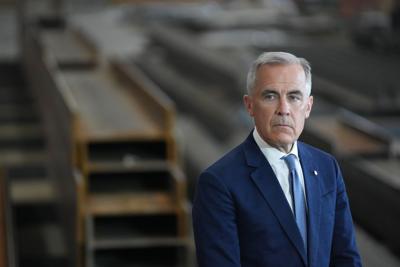OTTAWA — The Carney government’s plan to cut around $25 billion from the federal budget in three years could bring deep cuts to money set aside for provinces and municipalities for public services, as well as funding for Indigenous communities, veterans, newcomers, research and foreign aid, a new report warns.
The analysis released Thursday from the progressive Canadian Centre for Policy Alternatives suggests such cuts could be unavoidable under the Liberal government’s plans, which are nearly double what they promised during the spring election campaign, raising questions about why Prime Minister Mark Carney did not make the extent of those plans clear then.
So far, no final decisions on cuts have been made yet, and the federal government has asserted that it would target programs that are “underperforming, not core to the federal mandate, duplicative, or misaligned with government priorities,” despite warnings that the proposal could lead to job losses and service cuts.
“Half of these ‘savings’ are just cuts to somebody else, right? So it’s not like you are cutting your own staff or your own professional services utilization,” economist David Macdonald, the author of the report, said in an interview.
“You’re just pushing the problem onto somebody else’s lap, whether that’s veterans for disability supports, whether that’s province or municipalities, whether it’s First Nations governments, and then it’s their problem to make cuts to their social services or health-care programs or whatever to make up for what you cut to them.”
Many government departments would have no choice but to make such cuts because the vast majority of their spending goes toward transfer payments to other levels of government or organizations, says the report, which examined the roughly $190 billion pool of funding the federal government said is under review.
The findings came as Carney, who met Thursday with First Nations leaders from around the country in Gatineau for a summit on the contentious major projects law the government fast-tracked through Parliament, faces significant pushback from Indigenous groups already frustrated over the lack of consultation by the government.
Cindy Woodhouse Nepinak, the national chief of the Assembly of First Nations, called on Carney to exempt transfers to First Nations from the coming federal cuts. While the government has said statutory transfers to provinces and individuals, like the Canada Health Transfer and the Canada Child Benefit, are exempt, funding for First Nations is not.
In Ottawa, First Nations chiefs who gathered to protest the summit also slammed the government’s proposed cuts.
“We manage poverty as leaders of our nations,” Chief Gary Lameman of Beaver Lake Cree Nation said. “To hear that we’re going to be getting more cuts to our programs is devastating.”
Under the federal government’s plan, which comes amid a pledge to “spend less” and “invest more” while committing tens of billions of dollars more to the military and cutting income taxes, nearly all government departments and federally funded organizations and Crown corporations are expected to propose “savings” of up to 15 per cent of their spending in the next three years.
Thursday’s report suggests that more than half of the cuts will come from transfer payments to other levels of governments, non-profits and businesses, with one in five of the dollars cut being from money that now goes to First Nations governments for education, health care, policing and community infrastructure. Indigenous Services Canada has already warned staff that meeting its targets will impact jobs and programs, CBC has reported.
Nearly $1 billion could come from income, disability and other health-care supports for veterans. Another $800 million could come from international aid, while around $500 million could come from both newcomer supports and research and science funding.
Indigenous Services Minister Mandy Gull-Masty attempted to downplay those concerns on Thursday, saying it’s her duty to offer the “greatest level of service and program delivery” possible.
“For me, that means efficiency and refining that service delivery,” Gull-Masty told reporters. “To me, that doesn’t mean what I think the story is in the media right now.”
Error! Sorry, there was an error processing your request.
There was a problem with the recaptcha. Please try again.
You may unsubscribe at any time. By signing up, you agree to our terms of use and privacy policy. This site is protected by reCAPTCHA and the Google privacy policy and terms of service apply.
Want more of the latest from us? Sign up for more at our newsletter page.






























To join the conversation set a first and last name in your user profile.
Sign in or register for free to join the Conversation